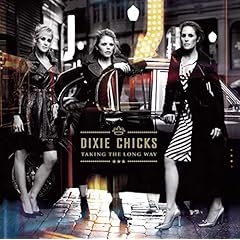I read two disturbing articles in the New York Times today. The first was really a blurb, not a full article, but it was a story with which I was already familiar because it's happening close to home. The school board in Libertyville, a suburb north of the city, has decided that students participating in extracurricular activities will be required to sign a statement agreeing that postings online describing or documenting inappropriate or illegal behavior are grounds for disciplinary action by the school.
This, folks, is chilling.
As a participant in the blogosphere, I harbor no illusions that the content of this blog, my own personal site, or my U Chicago site are either private or not subject to scrutiny. Any ideas, thoughts or claims I post on any of these sites I am willing to defend. I recognize that each site has a purpose and may be read by different groups of people. That's why I don't disclose everything about myself here or anywhere else in cyberspace. What's more, all three sites are governed by some sort of user agreement and/or terms of service contract (here's the one for Blogger, the service that maintains this site) that stipulates what materials may and may not be included in these sites. And if I'm stupid enough to post pictures of myself participating in illegal activities on the internet for all the world to see, then I shouldn't be surprised if the police track me down and charge me with a crime. It shouldn't make a difference that I put evidence on the web, as opposed to showing a picture to friends or buying a half-page ad in the paper and publishing the picture therein.
The issue in Libertyville, thus, is not that students -- or anyone else for that matter -- should be immune from having their web postings used against them. The problem is that it's not the school's place to impose authority over these kids other than during the time they're on school grounds or participating in school-related activities. If a group of kids in Libertyville has a keg party and posts pics for all the world to see on their MySpace page, then they're a bunch of dumb-asses and they deserve to get caught. But not by the school, only by their parents or (if the cops there are really that bored) by the police. When teachers and administrators complain that they spend too much time disciplining children on the one hand, and school boards purposefully seek out methods that would extend the reach of the school's jurisdiction to discipline students on the other, I wonder what the true motivation of these educational bureaucrats really is.
The second, equally troubling issue is who gets to decide what is inappropriate? The definition of "inappropriate" could be so broadly interpreted as to condemn students for perfectly legal behaviors that the school system, other parents or peers might find objectionable. How does this affect minority and disaffected students in the system? Will GLBT students be disciplined for discussing their sexual orientation online if others find that "inappropriate"? What about students who post political ideas online that might offend others? While in the school building or participating in school activities, the school should restrict what students say so as to promote a healthy, functioning learning environment. However, off school grounds students should be allowed to participate in whatever sort of social and political discourse they wish. Only their parents should be allowed to decide what sort of limits are placed on the media they use to espouse their views.
The other piece that caused me great distress this morning concerns a proposal by the ACLU to restrict the speech of its board members.
Let me say that again so it can sink in. The American Civil Liberties Union, proud defender of every American's first amendment right to free speech, is seeking to institute a policy whereby it restricts the free speech of its board members if they happen to disagree with the leaders or policies of the organization.
To be fair, I believe the policy says that board members shouldn't publicly criticize the policies or administration, but that's pretty well just semantics. Disagreement with policy is, in effect, criticism of that policy. Policy is an extension of the sitting administration. Thus, you disagree with policy, you're criticizing policy and the staff.
What has happened to the ACLU? The representatives from the organization -- of which, in the interest of full disclosure, I am a card-carrying member -- defend the policy by saying that rancor among the board and the leadership, including director Anthony Romero, hurts the organization's fund-raising efforts.
So let me just get this straight. The organization that I feel is the first and best line of defense against the continued erosion of our personal liberties in the name of fueling the corporate machine is sacrificing its own principles at the altar of the Almighty Dollar?
I sincerely hope that the additional thirty pieces of silver that the ACLU raises is indeed worth sacrificing the very freedom that lies at the core of its mission. It's a bit like The Gift of the Magi, only without the nobility of the sacrifice.
Subscribe to:
Post Comments (Atom)



No comments:
Post a Comment